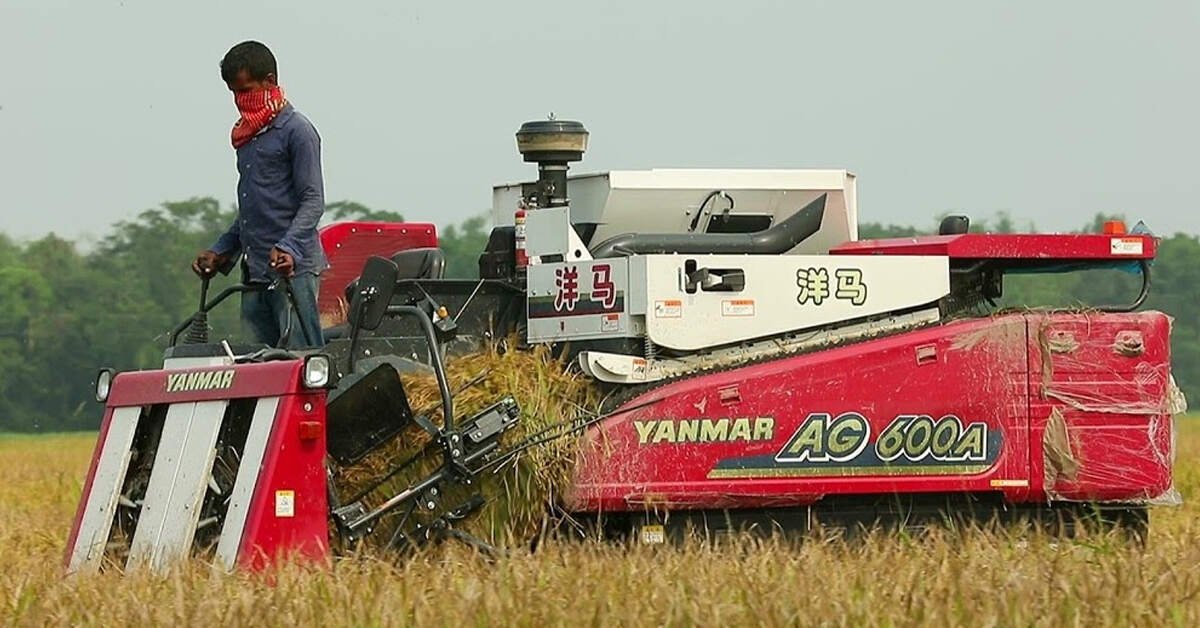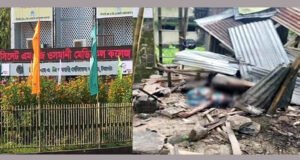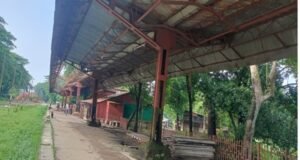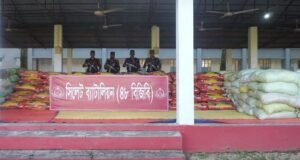
Sunamganj has used the maximum number of modern machinery in this Boro season. In addition to traditional methods, paddy has been harvested with more than 1,000 harvester machines. In this, the farmers in the entire district have saved about Tk 75 crore, said the Agriculture Department.
In Sunamganj, Boro paddy has been planted on 222,795,000 hectares of land. 13 lakh 53 thousand May in cultivated land. Tons of rice production has been targeted. Which is about 3 thousand 8 hundred crores in rupees.
1 thousand 38 harvester machines have been used to cut the cultivated paddy. Farmers have spent 1200 to 1700 rupees maximum for cutting paddy per bigha of land with machines. Meanwhile, the farmer spends from 2400 to 35000 taka to harvest one bigha of paddy in the traditional method. After harvesting the paddy in the traditional way, the machine has to be threshed again. Farmer’s share of paddy (1/20th) has to be threshed. Also had to pay 400 taka per bigha for threshing. In this, about 4 thousand rupees were spent on cutting and threshing rice per bigha.
Meanwhile, those who threshed with harvester machines spent 17 to 18 hundred taka. According to the information of the agriculture department, this has saved the farmers about 75 crore rupees. Resident of Nurpur village of Sukhair Rajapur North Union of Dharmapasha Upazila. Badrul Islam. This time he cultivated boro paddy on 8 bigha of land in Dhanquinna Haor. The yield has also been good. 20 maunds of paddy was produced per bigha.
He said that 20 thousand rupees have been saved as a result of harvesting paddy with harvester machines. It took 4 thousand taka to cut paddy of one bigha land in traditional method. 500 taka for threshing, another 500 taka for drying and bringing home by car. A total of 5 thousand rupees was spent. As a result of harvesting paddy with harvester machine, only 1700 rupees per bigha was taken. Eight hundred rupees have been spent in the transport sector. The total cost per bigha was only 25 hundred rupees. This has saved me 2500 rupees.
The farmer of Babupur village of the same union. Al Amin Chowdhury said, if 30 people work all day, they can cut rice of 9 to 10 bigha land. A harvester machine harvests 25 to 30 bighas of paddy in a day. So this time the paddy harvesting is done first. Money has also been saved. Biman Das Rajeev, a resident of Khalapara village in Habibpur union of Shalla upazila, said that if paddy is cut by machine, the cattle feed increases. In the traditional method of rice harvesting, only part of the rice is cut. Machine cutting is brought from rice husk (from below). Hay is more available in it.
Bimal Chandra Som, Deputy Director of Sunamganj Agricultural Extension Department, said that this time, paddy has been harvested in Howar with the maximum number of harvester machines. As a result, 100% paddy harvesting is over in Howar. In addition, farmers in the entire district have saved about Tk 75 crore due to machine harvesting.
 Weekly Bangla Mirror | Bangla Mirror, Bangladeshi news in UK, bangla mirror news
Weekly Bangla Mirror | Bangla Mirror, Bangladeshi news in UK, bangla mirror news







